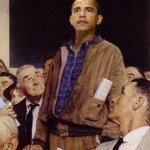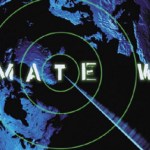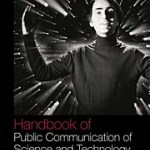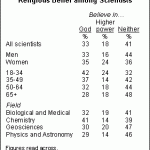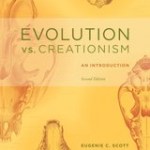
Over at the Columbia Journalism Review, Curtis Brainard previews some of the major themes and proposed initiatives from a new co-authored paper I have appearing at the American Journal of Botany. The article is scheduled for the October issue as part of a special symposium on science education and communication. A pre-publication author proof is available with the final paper online later this month. If you have been following the recent blog debates over science communication but have been looking for more substantive sources, this paper is probably for you. It's also a good introduction to…
Ted Kennedy endorses Barack Obama for president in a January rally at American University.
As the nation celebrates Senator Ted Kennedy's career and accomplishments, here at American University, Kennedy's influence is tangible and widely felt. In January 2008, when Kennedy endorsed Barack Obama for president in a rally on campus, it was a major turning point in the race for the Democratic nomination.
With Obama now in the White House, young people across the country and the world increasingly look to Washington, DC as a place to pursue careers and to realize their dreams. Many of those…
This semester, I am serving on the search committee for an exciting new tenure track position in science, environmental, and/or health journalism. Our School of Communication at American University is a leading laboratory for professional education, research, and innovation in the fields of journalism, public communication, and film and digital media. The new faculty member would have the opportunity to train the next generation of science, environmental, and health reporters while working in Washington, DC on innovative projects that address major trends and challenges in the field.
See…
For DC-area readers who have been following the discussion of climate change communication at this blog, you will want to turn out to Ed Maibach's talk tomorrow at the NSF. Details below. For background reading, see Ed's report with colleagues on Global Warming's Six Americas and the resources at the Center for Climate Change Communication, which he directs. I would also recommend his recent co-authored article from the American Journal of Preventative Medicine. Ed and I are collaborating on a funded project to test different frames on climate change across audience segments, evaluating the…
Over the summer, a few stories have appeared speculating about a new "twitter effect" on movie box office success. The technology is thought to speed-up and amplify the traditional word-of-mouth influence. For example, the less than anticipated opening weekend for Bruno is believed to be partially attributable to movie-goers leaving the film (sometimes early) and twittering a negative review.
Now it appears movie studios are attempting to turn the twitter effect in their favor. From today's Washington Post:
Studios are trying to gauge the impact of an avalanche of tweets and how it affects…
Last year I gave a strong recommendation to the CBC series by David Caylay "How to Think about Science" which provides listeners with a fascinating introduction to the field of science studies. Now it turns out that the series will be available in book form this October, with the interviews appearing as essays or transcripts. See Amazon for more details.
I have long argued that Francis Collins would make a strong candidate to head the NIH, considering his scientific credentials, his past administrative experience, and his ability to communicate effectively. Unlike some critics, I see his work on the relationship between science and religion as a major bonus, offering an important middle ground voice on the topic.
Yet an opinion article appearing this week at The Scientist offers a valuable constructive critique: Collins, like many others in science, may be guilty at times of hyping and over-selling the promise of research. The general…
As I wrote last week, deliberative forums and town hall-type meetings are one of the major innovations in science communication and engagement. Whether forums are focused on climate change or nanotechnology, research shows a range of positive outcomes both for lay participants and organizers of these initiatives. Yet as Kirby Goidel and I document in a study published at the journal Political Behavior, somewhat predictably, the individuals most likely to turn out and voice their opinion at a local deliberative forum on a science-related debate are also those individuals who have the most…
Last week I pointed to two edited books released in 2008 that do an outstanding job of synthesizing the relevant issues and research on science communication and public engagement. Here are two more: From Oxford University Press there is a companion set of edited volumes that cover themes related to science communication research and practice respectively. Both books are worth checking out and owning for people working in the academic field or for scientists and communication professionals.
Holliman, R., Thomas, J., Smidt, Scanlon, E., & Whitelegg, E. (Eds.) 2008). Investigating Science…
If you don't already subscribe to the daily round up and real time "peer review" of science coverage assembled by Charlie Petit at the MIT Knight Science Journalism Tracker, you are missing out on one of the Web's great science communication resources.
Things are also likely to get even richer at the Tracker. Charlie announced yesterday that the MIT Knight program is adding Paul Raeburn as a contributor to the round-up, reviewing coverage of medicine and health. Raeburn is a veteran of the AP, Business Week, and NPR. He's also a past president of the National Association of Science Writers.
The New York Times led their Sunday edition with an article by John Broder focusing on recent Defense department conclusions on the national security risks of climate change. Here's the key takeaway from the article on what it could mean for re-framing the debate over cap and trade legislation for fence-sitters in the Senate:
Much of the public and political debate on global warming has focused on finding substitutes for fossil fuels, reducing emissions that contribute to greenhouse gases and furthering negotiations toward an international climate treaty -- not potential security challenges…
Last week I participated in a two-day workshop at NSF on climate change education. The meeting brought together researchers in science education, communication, and informal learning; representatives from government agencies such as NOAA, the EPA, and NASA; and organizations such as the American Geophysical Union and the American Meteorological Society. The presentations and discussions focused not only on school-based settings but also on public engagement campaigns, the news media, and the role of science centers and museums.
Among several participants, there was an emphasis on three…
I recently received copies of two relatively new edited volumes on science communication and public engagement. The volumes include research and perspectives from an interdisciplinary collection of mostly European scholars. I am preparing a review essay on these books for the journal Political Communication, drawing connections to research on policy debates, communication influences, and citizen engagement generally. I will post a draft of this review when complete. In the meantime, these twin volumes are strongly recommended, and are perhaps the best introduction to the major issues in…
1
Wired Science - Wired Blog
2
Watts Up With That?
3
Climate Progress
4
Environmental Capital
5
Dispatches from the Culture Wars
6
TierneyLab - New York Times blog
7
Gristmill
8
Respectful Insolence
9
Effect Measure
10
The Frontal Cortex
11
Next Generation Science
12
RealClimate
13
FuturePundit
14
A Blog Around The Clock
15
Greg Laden's Blog
16
Living the Scientific Life (Scientist, Interrupted
17
Gene Expression
18
Cognitive Daily
19
Uncertain Principles
20
BPS Research Digest
21
Deltoid
22
Laelaps
23
SciGuy
24
The Questionable…
As I noted when the Pew science survey was released last month, there was a disturbing tendency among some bloggers and commentators to seize upon the findings as yet more evidence of a "dangerous divide," a "widening disconnect," and a "gulf" between scientists and the public. I summarized some of the problems with this narrative at the time as did others.
In a follow up article at The Scientist titled "Are Scientists Really Out of Touch?," several researchers who have conducted similar surveys of scientists and the public have noted their own reservations about the "dangerous divide" claims…
One of the overlooked findings of the Pew survey of U.S.-based scientists is that roughly 51% say that they either believe in God (33%) or a higher power (18%) and roughly 30% self-identify as Protestant (20%) or Catholic (10%). The findings cut against a commonly voiced claim by many outspoken atheists that scientists are overwhelmingly non-religious and that a scientific worldview is incompatible with religious belief.
In addition, among the sample of AAAS members surveyed, roughly 2/3 of scientists ages 18-34 say that they believe in God (42%) or a higher power (24%). This is in sharp…
At the WPost today, Dan Morgan contributes an excellent analysis of what he calls the "agracrats," Democratic members of Congress from traditional farm states such as Iowa or Minnesota. As Morgan notes, these representatives have been an influential force in first opposing and then fundamentally altering climate change legislation, fearing as Morgan describes that "the cap and trade measures would increase fuel and fertilizer costs for farmers, hurt coal-burning rural electric utilities and leave the Midwest's thriving biofuels industry vulnerable to regulatory restrictions by the…
About 400 people packed the classic AFI Theater last night for the NIH-sponsored screening and discussion of Inherit the Wind. Here are a few follow-up notes, especially for attendees logging on looking for more information about topics discussed.
1. As I mentioned last night, perhaps the best book on understanding the science, the history, and the politics of America's decades long debate over evolution is Eugenie Scott's Evolution vs. Creationism, recently updated, expanded, and released in its 2nd edition.
2. For those looking for more details on the issues related to framing and public…
Tomorrow night, watch Spencer Tracy argue in defense of evolution.
For readers in the DC area, tomorrow night at 7pm, the NIH Office of Science Education and the American Film Institute are teaming up to sponsor a screening of Inherit the Wind as part of their summer film series "Science in the Cinema."
Following the film, I have been invited to make a few remarks on the evolution debate as it plays out in contemporary culture and the enduring themes from the classic movie. The event and film series is designed to facilitate active audience participation and debate, so I expect there will be…
As I noted last week, the Pew survey of scientists finds that more than 50% self-identify as liberals compared to just 20% of the public.
Which then leads to the question: what role does ideology play in shaping scientists' policy preferences relative to science, especially in those areas outside of their specialty? Or on those issues where there are high levels of uncertainty about risks, benefits, and trade-offs? Heuristic decision-making is common in politics and policymaking, are scientists as a group any different?
Put another way, in responding to the Pew findings, several commentators…

